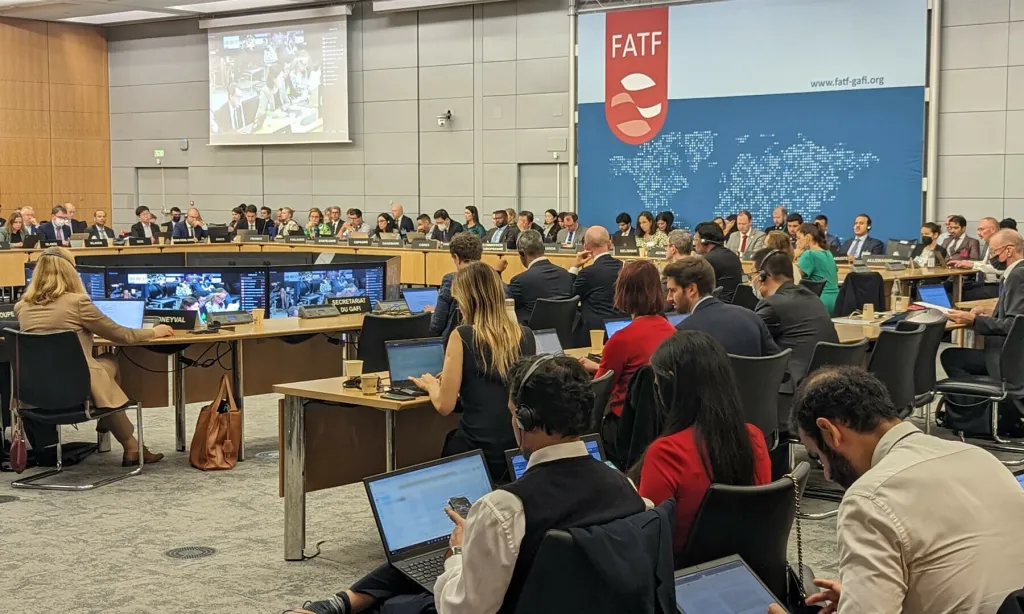Srinagar– Ending the speculations, Financial Action Task Force (FATF) on 21 October excluded Pakistan from the grey list of the global watchdog on terror financing and money laundering after four years.
“Pakistan is no longer subject to FATF’s increased monitoring process; to continue to work with APG (Asia/Pacific Group on Money Laundering) to further improve its AML/CFT (anti-money laundering & counter-terrorist financing) system,” it said.
Pakistan was put in the inglorious list in 2018 for its failure to check risk of money laundering, leading to corruption and terror financing.
What It Meant for Pakistan?
With Pakistan’s continuation on the grey list, it had increasingly become difficult for Islamabad to get financial aid from the IMF, the World Bank, the Asian Development Bank (ADB) and the European Union, thus further enhancing problems for the cash-strapped country.
The South Asian country needed 12 votes out of 39 to exit the grey list and move to white list. To avoid black list, it needed support of three countries. China, Turkey and Malaysia are its consistent supporters.
Following being placed on the grey list by the Paris-based global watchdog on money laundering and terrorist financing In June 2018, it was given a plan of action to complete it by October, 2019.
The FATF reviewed Islamabad’s progress since June 2022, and took a decision in its plenary held in Paris on October 20-21.
Addressing the press conference at the conclusion of its plenary, FATF president T Raja Kumar said that Pakistan has largely addressed all the 34 items flagged by the watchdog.
What is FATF?
FATF is a global terrorist financing and money laundaring watchdog that sets international standards that aim to prevent these “illegal activities.”
It’s essentially a policy making body, who works to bring about national legislative and regulatory reforms in these areas.
As of now, over 200 nations and jurisdictions are committed to implementing the standards developed by them.
How has Pakistan reacted to this?
Pakistan Prime Minister Shehbaz Sharif said Pakistan’s exit from the FATF grey list was a “vindication of our determined and sustained efforts over the years”.
In a tweet, Sharif said, “I would like to congratulate our civil & military leadership as well as all institutions whose hard work led to today’s success.”
How did India react?
Many in India view it as traversity of the fight against terror. Pakistan is now free of the control of the world anti-money-laundering body, even the proposal for which, last week, had led to anger in New Delhi.
Commenting on Pakistan’s move to get out of the FATF list, Jammu and Kashmir Lieutenant Governor Manoj Sinha told a New Delhi based news channel that Pakistan was not happy with peace in India. “The world is watching which country is aiding terrorism…Our ministry of external affairs (MEA) is vigilant and takes appropriate action.”
Reacting to this statement, External Affairs Ministry spokesperson Arindam Bagchi said that “as a result of FATF scrutiny, Pakistan has been forced to take some action against well-known terrorists, including those involved in attacks against the entire international community in Mumbai on 26/11.”
The world should remain clear, Bagchi added, that Pakistan must continue to take credible, verifiable and irreversible action against terrorism.
“It is in global interest that the world remains clear that Pakistan must continue to take credible, verifiable, irreversible and sustained action against terrorism and terrorist financing emanating from territories under its control,” Bagchi said on Friday.
“We understand that Pakistan will continue to work with the Asia Pacific Group on Money Laundering (APG) to further improve its Anti Money Laundering (AML) or Counter Terror Financing (CFT) system,” he added.











